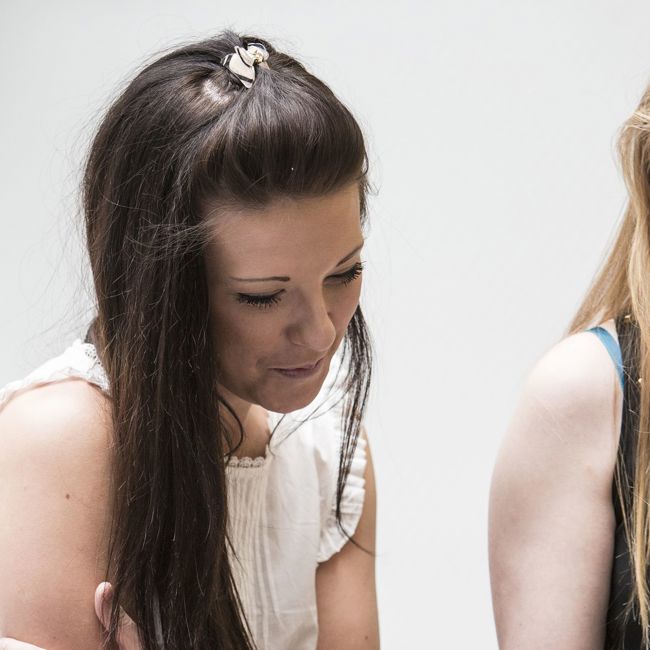Graphic Arts & Moving Image
Award
BA (Hons)
Duration & study mode
3rd year entry, 2 years
School
Business & Creative Industries
Location
Ayr
Ucas code
W902
Course starting dates
-
Ayr: September

Clearing opens on Saturday 5th of July 2025.
Get ahead by signing up to our Clearing Priority Pass today!

Pursue your passion for art that tells a story.
UWS’s BA (Hons) Graphic Arts & Moving Image provides entry to exciting career opportunities for the next generation of artists. Whether through animation, illustration, television & film graphics or the production of graphic novels you will build a professional portfolio that will develop your creativity, skills and employability across the contemporary creative industries.
With teaching led by creative industries professionals you will work in our contemporary art studios and labs at the beautiful Ayr campus.



Graduates will develop skills and experience to support careers in:
We welcome Scottish, UK and international students and consider all applicants on an individual basis.
Please visit our Undergraduate Entry Requirements page for information on our different entry requirements, including country-specific details for EU and non-EU qualifications.
All applicants will be required to submit a personal statement, reference and portfolio.
PLUS Higher English (Grade B or above) or accepted alternative
APL refers to certificated learning of full or part completion of academic qualifications for which there is an agreed, general credit rating or recommendation as set out in the University’s Regulatory Framework:
“Appropriate learning, wherever acquired, provided that it has been subject to reliable and valid methods of assessment, is accepted for the purpose of gaining academic credit towards an award of the University.”
Applicants who have successfully completed a programme of certificated learning at a recognised UK awarding institution are considered for admission with credit, at an appropriate point on the programme of study for which entry is being sought.
APEL is defined as learning that has its source in experience, for example at work or in the community. The assessment of APEL is undertaken by the University.
£1,820 cost per year of study (usually paid by the Scottish Government via SAAS*)
£9,250 Cost per year of study, but not more than £27,750
£9,250 Cost per year of study, but not more than £27,750
£15,500 per year of study
£1,820 cost per year of study (usually paid by the Scottish Government via SAAS*)
£9,535 per year of study (4 years of study for the price of 3 years)
£9,535 per year of study (4 years of study for the price of 3 years)
£15,500 per year of study
£305 per module (20 credits)
£1,590 per module (20 credits)
£1,590 per module (20 credits)
£2,580 per module (20 credits)
Ready to apply? All UK & EU undergraduate applications should be made through UCAS. Further information for international, part-time and exchange applications can be found below.
UCASClearing runs from 5 July through to 20 October. Spaces are limited, therefore we encourage application as soon as possible.
If you are using Clearing to apply for University for the first time, you’ll need to register with UCAS and submit an application.
Find out more about applying through Clearing.
A small number of courses will require applications to be made directly to UWS. This will be noted where required.
Please refer to our Undergraduate Application Guide for domestic & EU/EEA .
For applications and more information on applying, please visit www.ucas.com
Students from non-EU/non-EEA countries can apply directly to UWS via our dedicated online application system. The latest we can process your application is 6 weeks before the course start date to allow for visa processing times. For more information on when and how to apply to study at UWS please refer to our International Undergraduate Application Guide.
For part-time & online study, you should apply directly to the University through our online application system, not through UCAS. Please select the part-time mode of study when submitting your application. Before you begin your application, it is important to read the part-time application step-by-step guide for a smooth process.
To come to UWS as a visiting student on a study abroad or exchange programme, you must apply entirely through our online system.
An ATAS certificate is not required for overseas students applying for this course.
Got your results and ready to apply?
Complete our Clearing Application form
Waiting for results?
Sign up to our Clearing Priority Pass
You can also phone us on 0800 027 100
We will always try to make sure that we publish accurate course information but we do not accept responsibility for any mistakes or omissions. We will also try to make sure that we deliver our courses in line with our published information. However, we may not always be able to do so and you can find further information about this in our enrolment terms and conditions.